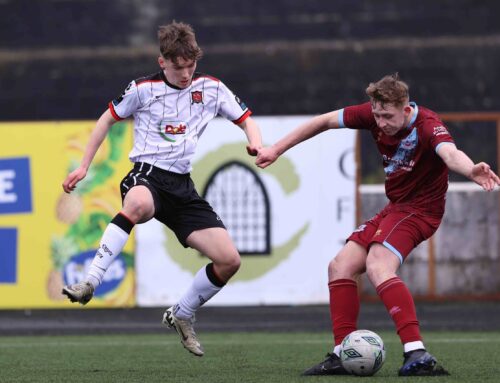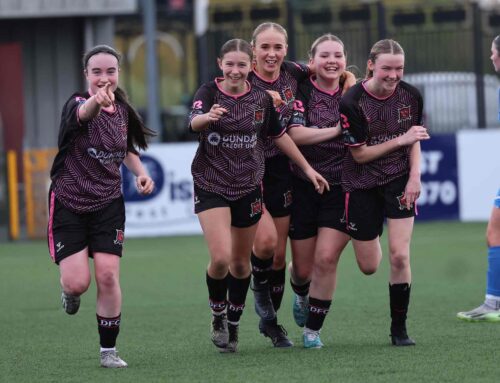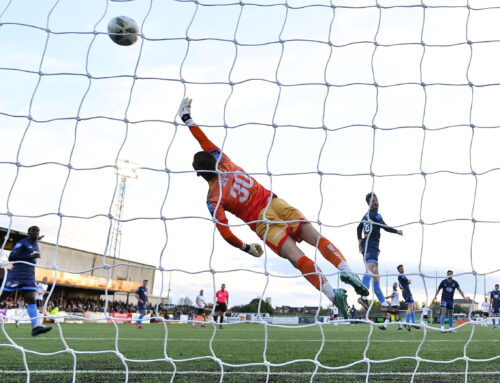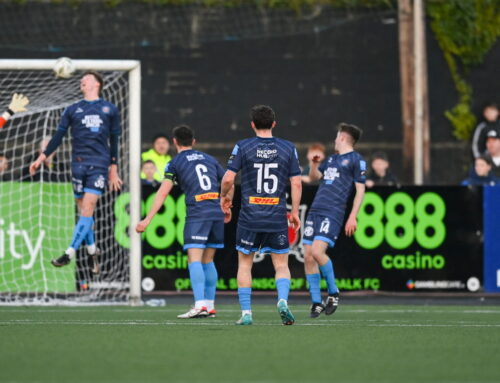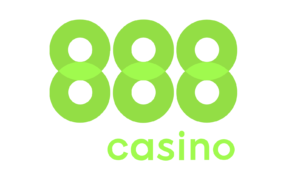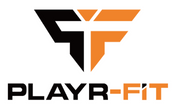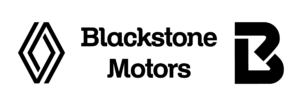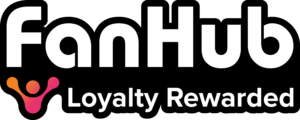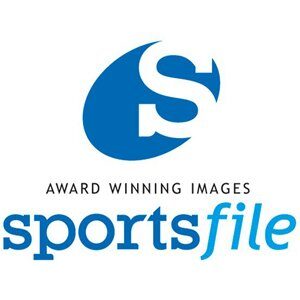On Monday, June 5th 1989, a crowd of 6,000 people, along with some of the biggest names in football, packed into Oriel Park to pay tribute to one of the town’s favourite sons, Barry Kehoe. In this article, first published in 2019, Gavin McLaughlin takes a look back at a memorable night and the events leading up to his testimonial.

Barry Kehoe, pictured in 1986. Photo: INPHO/Billy Stickland
Growing up in the 1980s, I had two footballing idols. Both were midfielders, the proper, box-to-box version that seems to be going out of fashion with every passing year. I didn’t know it back then, but, as faith would have it, they had even played together. More on that later.
The first was Bryan Robson, a dynamo who would single-handedly drag his team through matches. Manchester United’s season would invariably hit the wall when he got injured and England might even have gone on to win the World Cup in 1986 had he not dislocated his shoulder. He signed for United nine days before I was born, drove a Jaguar and had a boot deal with New Balance — 30 years before anyone had even heard of them! He was a real-life Captain Marvel with the number seven on his back but he plied his trade across the water, viewable only on the TV. He was, you might say, a distant hero.
The second lived a lot closer to home. He wore the number eight shirt, driving Dundalk to trophy after trophy in Ireland and looked right at home in the company of top English and European stars when the Lilywhites would face Europe’s best. What made it even better was that he was one of our own. In the Redeemer Boys School, where lads had allegiances to different English clubs, he was the one player that would unite everyone. Before there was Stephen O’Donnell, before there was Daryl Horgan, before there was Chris Shields, and before there was Patrick Hoban, there was Barry Kehoe. The player that every Dundalk fan wanted to be. The hometown hero.
Barry’s story is well documented, a tale of glory on the field set against the harsh backdrop of illness off it. In 1983, at the age of 20, he was diagnosed with cancer, but he fought his way back to full health, overcoming it with a determination that was the hallmark of his displays on the pitch and five years later, he led the Lilywhites to a league and cup double. However, just seven months after bringing the FAI Cup over the Hill Street Bridge following a 1–0 win over Derry City, Barry had played his penultimate league game for the club. A major heart operation revealed that the cancer which had infected his body six years earlier had returned for another joust. As he resumed the battle, the people of Dundalk, along with some of the biggest names in football, came out in force to pay tribute to one of the town’s favourite sons at his testimonial which took place in the summer of 1989.

Three Dundalk lads: Willie Crawley, Tommy McConville and Barry Kehoe pictured during a training session with the Lilywhites. Photo: Arthur Kinahan
A star is born
Born on September 12th, 1962 and reared in Pearse Park, Barry lined out for St Dominic’s in the Dundalk Schoolboys League and was part of Tommy Connolly’s star-studded Dundalk youth side that won an AUL treble in 1980/1981. International recognition followed with Eamon Dunphy picking him for the Republic of Ireland Youth squad and he made four appearances for the Dundalk first-team that season with Jim McLaughlin handing him his debut in a Leinster Senior Cup tie at home to Bohemians on September 25th, 1980. In direct opposition was a Bohs debutant who would go toe-to-toe with Barry in many a battle over the next eight years, Paul Doolin.
Barry’s league bow came in a 3–0 win over Waterford in February 1981 with his first goal coming a week later as Dundalk beat Shamrock Rovers 2–1 at Oriel Park. McLaughlin’s side finished the season with the FAI Cup, League Cup and President’s Cup on the sideboard but the Derryman was already looking to the future and following a post-season youth tournament in France, he revealed his plans for 1981/82 to the local papers.
“I’ve picked up a real gem of a player in France,” said Jim. “He has a big future in the game and he will go a long way. He’s from Dundalk and his name is Barry Kehoe.”
McLaughlin’s words bore fruit as Barry played in all 30 league games, scoring four times, to help Dundalk to their sixth league title in 1981/82. Their double hopes were ended after a third — yes, a third — FAI Cup semi-final replay against Bohs. At this stage, his performances were beginning to attract the attention of cross-channel clubs and he starred in both of Dundalk’s European Cup Winners Cup matches against a Tottenham Hotspur side which included stellar names such as Ray Clemence, Chris Hughton, Ossie Ardiles, Tony Galvin, Garth Crooks, Steve Archibald and Glenn Hoddle. After two thrilling encounters, including a second leg, played in front of 33,000 people at White Hart Lane, the Lilywhites bowed out 2–1 on aggregate. A man-of-the-match display and a goal for good measure followed in a friendly win over Celtic at Oriel Park in December 1981 and suddenly Barry was on his way to Manchester United for a trial.
Accompanied by McLaughlin, Barry flew to Manchester in March 1982. He was joined on the plane by a shy Dubliner named Paul McGrath. A meeting with United manager Ron Atkinson followed and Barry was informed that he would be playing on the left-hand side of midfield in a friendly against Barnet that evening. Alongside him were three relative unknowns: Ray Wilkins, Steve Coppell and a certain Bryan Robson! Dubliner Anto Whelan, who later played for Dundalk in the mid-nineties, partnered Martin Buchan at centre-back as United won 2–0. The goals came from two Irishmen, Frank Stapleton scoring a penalty just seven minutes after the trialist wearing the number 10 shirt, B Kehoe, had put United ahead!
Despite rave reviews from Atkinson, United never followed up on their interest, a decision that left McLaughlin bewildered. “To this day, I cannot understand why they never signed Barry,” he wrote in 1989. “He was certainly the best player on the pitch that night, and that includes Robson and Wilkins.” Further trips to Liverpool and Luton Town followed at the end of the League of Ireland season. Never one to miss an opportunity, teammate Tommy McConville, who also saw a move to Old Trafford slip through his fingers years earlier, christened Barry ‘The Judge’ due to the number of trials he had! Another chance of a breakthrough arrived at the beginning of 1982/83 when he went on a tour of Germany and Greece with Manchester City but things went pear-shaped and Barry, approaching his 20th birthday, refocused on the campaign ahead, not knowing what was lying in wait.
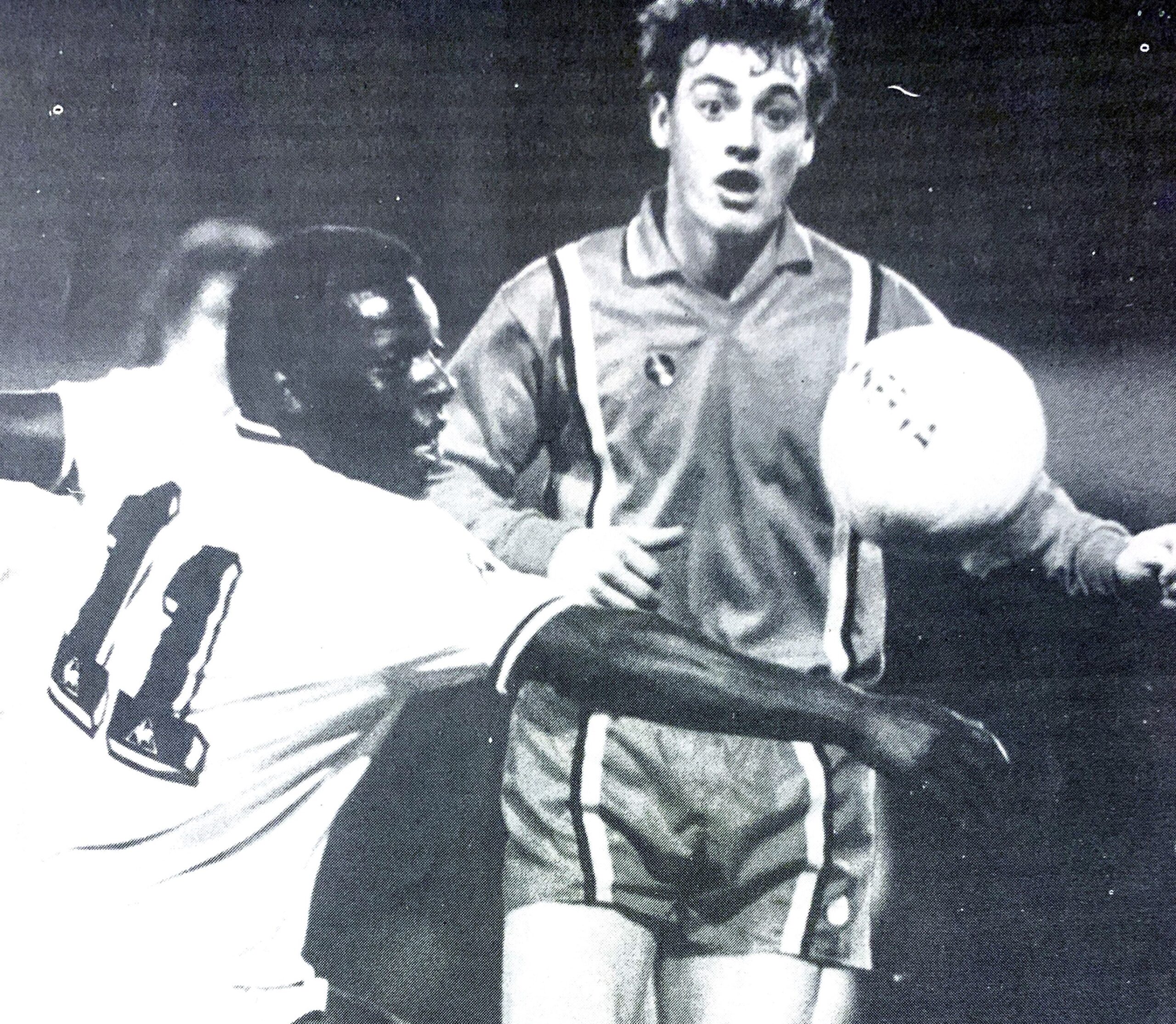
Barry Kehoe in action against Garth Crooks of Tottenham Hotspur in Dundalk’s European Cup Winners Cup tie at White Hart Lane in 1981
Turbulent times
Trouble started to brew in October 1982 when Barry experienced a bout of dizzy spells after being hit in the stomach by the ball during a League Cup tie with St Patrick’s Athletic. It later transpired that the blow had irritated cancer cells in his body. Two months later, and with the dizziness showing no signs of abating, he was sent to the Lourdes Hospital in Drogheda for a check-up. An infection in the lower abdomen was the diagnosis and in January 1983, Barry had infected cells removed and sent for analysis. A course of radium treatment at St Luke’s Hospital in Dublin was prescribed and Barry would stay in his sister’s house in Finglas four days a week, returning home to Dundalk at the weekends where he would go and watch his teammates in action.
Life took another vicious turn when his father died on February 11th, 1983 and two months later, on April 22nd, he underwent a check-up in the Lourdes. The results weren’t good and a new form of treatment called chemotherapy was advised with Barry assured that it had a 100% success rate. Three days later, in St Luke’s, he was told otherwise, and the word ‘cancer’ was mentioned for the first time. Up to that point, he was simply told he had a disease. For five days a month between May and August 1983, he endured the nauseating effects of chemotherapy but he kept himself strong and fit, taking part in five-a-side matches, training with Dundalk teammates McConville and Richie Blackmore and even lining out in the Summer League. In September 1983, Barry received the perfect 21st birthday present: the all-clear. He had beaten his most difficult opponent.
Football became his focus once again and on October 20th, 1983, just short of a year since his last appearance, he made an emotional return to the Dundalk team in a Leinster Senior Cup tie against Athlone Town. With Jim McLaughlin now at Shamrock Rovers, Barry had to try and impress new manager John Dempsey, who lasted less than a season in the hot seat before he was replaced by Tommy Connolly. The arrival of Turlough O’Connor in May 1985, though, gave Dundalk fresh impetus. At the end of the 1985/86 season, ‘Turlie’ wanted to put Barry on the transfer list. Whether it was a psychological move or not, the shock tactic worked and Barry, now married to his wife Adrienne, daughter of former Dundalk chairman Enda McGuill responded with his finest season in years as the Lilywhites finished runners-up in the league and FAI Cup, won the League Cup and secured a place in Europe. They went one better in 1988 with Barry an integral part of a memorable league and cup double-wining side. I’ll never forget the day he and Dessie Gorman brought the trophies — remember that big gold ball? — to the Redeemer Boys School.

Barry Kehoe in action against Red Star Belgrade’s Robert Prosinecki in the European Cup tie at Oriel Park in 1989
1988/89
The 1988/89 season started promisingly for Barry and Dundalk. As league champions, O’Connor’s men were handed a crack at Yugoslavian kingpins Red Star Belgrade in the European Cup. Barry played in the first leg at Oriel Park where Red Star produced an exhibition, winning 5–0, but missed the second leg with a calf injury. On home soil, Dundalk were still the team to beat, losing just once in their opening 23 domestic games. The sole defeat was a telling one with McLaughlin’s Derry City cruising to the League Cup with a 4–0 demolition job at Oriel Park in October 1988. Off the field, Barry made his foray into the business world with Mr Ridley’s officially opening a month later. To this day, it remains a landmark of the town.
After scoring what proved to be his final goal for the club in the 1–1 draw away to Shamrock Rovers on November 25th, the last of Barry’s 15 appearances of the campaign came on December 4th, 1988 in the less than glamorous surroundings of St Colman’s Park. O’Connor’s double-winners slumped to their first league defeat of the season against a Cobh Ramblers side that had failed to win in any of their previous 13 outings. A groin strain was cited as the reason for his absence but, unfortunately, there were more malevolent forces at work. A routine medical visit suggested he had a heart murmur. Further tests were carried out at the Mater Hospital in Dublin and bad news followed from Professor Declan Sugrue. “I’m afraid you have a growth on the right ventricle of your heart,” he told Barry. “If it’s malignant, you’ll need more chemotherapy. If it’s benign, we’ll have to operate.”
In January 1989, Dundalk’s bid for back-to-back titles suffered a heavy blow when they were beaten 2–0 by Derry City at the Brandywell and days later, Barry — who was pictured before the game with the injured Terry Eviston — underwent major surgery to remove a cyst from a valve on his heart. After weeks of immense pain and trauma which saw his lungs collapse and infection set in, Barry was informed that a tiny particle of malignancy had appeared in the heart biopsy and that chemotherapy was needed.

McClair’s Memories
In the meantime, work had started on putting a testimonial together. Pat D’Arcy, the ghostwriter of Barry’s life story, ‘My Most Difficult Opponent’ recalls the conversation that got the ball rolling.
“I remember sitting around with Enda McGuill, his wife Noreen, his son Gerry and Reina and Jim McLaughlin. We were chatting about Barry and his health situation. It wasn’t good and it looked as if his career would once again be coming to an end. He was back on chemotherapy at the time and the talk moved to doing something for him. He had been through everything, got over it, made a comeback, and now was facing another battle. The club was more than willing to help out and give him a special testimonial, especially as he was approaching his 10th season.”
Discussions were held between McGuill, Des Casey, Jack Charlton and members of the Republic of Ireland squad before the World Cup qualifier with Spain in April 1989 and a game between a Barry Kehoe Selection and a Republic of Ireland XI was mooted for June 5th, 24 hours after the Boys In Green were due to meet Hungary in a qualifier at Lansdowne Road. Early reports stated that Liverpool’s Stephen Staunton would, once again, pull on a Dundalk shirt for the game and there was real excitement when it was confirmed that Manchester United duo Brian McClair and Mal Donaghy would play for the Kehoe Selection. The addition of McClair — who said he would “cycle from the airport” to be involved — was a real coup for the organisers. After moving to Old Trafford from Celtic in the summer of 1987 he went on to score 24 times, becoming the first United player to hit 20 league goals in a season since a certain George Best, 20 years earlier.
“I remember the game and the event very well,” recalled McClair in 2019. “Alex Ferguson told me about Barry’s background and the way he overcame his illness to get on with his life and career and he asked me would I go over and play in it. It was a great weekend. I was treated brilliantly by Barry and his family from the moment I arrived in Dundalk. We had a great couple of days. I remember there was a great crowd at the game and there were some real good laughs at the dinner after it. Barry was so humble and had a great attitude about everything,” he added. “What it did was make me appreciate every single day.”
The Scot, who lined out for Celtic in a friendly at Oriel Park five years earlier, returned to the Carrick Road in 1994 with a United side that had to come from two goals down to beat Dundalk in Gino Lawless’ testimonial. It’s a game that was made famous by Eddie Van Boxtel, who became the first goalkeeper to stop an Eric Cantona penalty. “It was a good save,” recalled McClair. “It had to be to keep one of Eric’s penalties out!”

‘My Most Difficult Opponent’
Player sponsorship, costing €250, was quickly snapped up with a jersey, match tickets and passes to the Gala dinner in the Imperial Hotel and, more importantly, the disco in Tivoli’s afterwards, on offer to sponsors. Local company Riverside Manufacturing agreed to meet the cost of the international team’s accommodation. A special 64-page programme, titled ‘My Most Difficult Opponent’, was produced for the game itself. Five thousand copies were printed by TP Tekno Printers in Mulholland Avenue and compiled by the late Vincent Duffy. Gerry Malone, who would later cover the club as a reporter for LMFM was responsible for sourcing advertisements with current PA announcer, Michael Duffy, submitting cartoons. As well as the traditional features you would find in a programme, it contained Barry’s compelling story, written by Pat D’Arcy, and is widely recognised as one of the best Irish football publications of all time.
“Myself and Barry were good friends, meeting often, either in Enda McGuill’s office at The Square or with Jim McLaughlin,” said D’Arcy. “I made the suggestion to him that he should tell his story. It was a great one. There was the history of a lot of the soccer life of the town tied up in Barry’s life, many mighty men and women had an influence on him, and the whole story was well worth telling. He thought about my suggestion for a while, maybe 10 seconds, and said he would if I would write it. So away we went.
“It didn’t take so long,” he added. “Barry came round to my house whenever he had the time, and talked. I asked him some questions but he was a fantastic story teller, he could tell the story, with all its pain and pathos, humour and fears. We planned a structure and Barry had a clear idea of the things he wanted to say, of people he wanted to credit with helping him along in life.
“The story just unfolded. I typed it all up on my wee Apple IIc computer and saved the wonderful words on these big floppy disks. We’d chat about something, I’d write it up, save it to disk, print it, and Barry would read through at our next meeting, checking for accuracy, putting in further memories, impressions, thoughts. In this way, we worked our way through the life story.”
In his ‘Fans Eye View’ column, supporter and Dundalk FC programme contributor Kieran Lawless wrote that Barry’s ‘dignified and courageous battle against illness has been an example to us all and taught us to place our own trifling problems in perspective.’
‘At a time when it seems football is in danger of being taken over completely by thugs, chancers and messers, it is a pleasure to salute Barry Kehoe’.
There were tributes from Charlton and the Irish squad with McGrath recalling their short stint together at Old Trafford. ‘We had a couple of good nights together on the town in Manchester and Barry is a great fella. I am sad for him that things didn’t work out better but I know he looks on the positive side of everything. I am happy to be in a position to help a fellow professional. Good luck, Barry!’ Staunton also penned a few words, saying that he ‘used to take enjoyment watching Barry play for Dundalk when I was a fan standing on the terraces.’ The most poignant piece came from his old manager, McLaughlin, who stated: ‘A special bond has developed between myself and Barry that some people find hard to understand. We have formed a deep and lasting friendship which I value so highly.’
Details of the game were made public during Dundalk’s 1–1 draw at home to struggling Galway United on March 27th, 1989, a result that all but ended their hopes of successive titles. Making his first appearance at Oriel Park in some time, Barry was given a fantastic reception by the Lilywhites support and it was confirmed that Jack Charlton would be bringing his ‘Boys In Green’ to Oriel Park on Whit Monday, June 5th at 7pm. On the field, Kehoe’s absence was keenly felt in the run-in as Dundalk relinquished their hold on the FAI Cup, losing 1–0 to Cork City in a quarter-final replay at Turner’s Cross. Worse was to follow with Derry City beating Cobh Ramblers in their final league game to put the seal on an unprecedented domestic treble.
‘A gala experience’

Brian McClair and Mal Donaghy chat with Mick Neville and Gino Lawless in the line-up. To their far left is Alan O’Neill and Martin Lawlor. Photo: Thomas Gorman
Described by the Democrat as a ‘feast of football’ the big night itself saw over 6,000 people come out to pay homage to one of Dundalk’s favourite sons. There were cheers even before a ball was kicked when Barry, flanked by Enda McGuill and Turlough O’Connor to his right, wife Adrienne and Eamon Hiney to his left, signed a new contract for the 1989/90 season. Barry later revealed that the contract was for €1 a week but it was a fine gesture from the Dundalk board and one that showcased their steadfast belief that he would recover from his latest setback.
The ‘Barry Kehoe Selection’ comprised an all-star cast. Barry’s Dundalk teammates Alan O’Neill, Gino Lawless, Martin Lawlor, Dessie Gorman and Terry Eviston were joined by Cork City’s dual star Dave Barry — a thorn in the side of both the Lilywhites and the Louth senior GAA team just weeks earlier — and the Derry City trio of Paul Doolin, Liam Coyle and Mick Neville, fresh off the back of a domestic treble with the Candystripes.
“Myself and Barry both got married on the same day back in 1986,” explained Neville. “Me and my wife were going on our honeymoon and into the airport walks Barry and Adrienne. We shook hands with each other and congratulated each other.
‘Where are you going?’ I asked him.
‘Portugal,’ was his reply.
‘Same as myself,’ I said, ‘What part?’
‘Don’t know,’ said Barry.
‘I don’t know either, to be honest, Portugal is all I know’.
“Myself and the wife got on the bus to go out to the plane and it turns out Barry and Adrienne are on it. We board the plane – and it turns out Barry and Adrienne are on it! We got off the plane, said our goodbyes again but, lo and behold, Barry and Adrienne are on the bus to the same place — for two weeks!
“We became great friends after that and he invited me up to play in the testimonial. Ireland played a World Cup qualifier the night before and there was a fierce smell of drink coming from somewhere,” laughed Neville. “I remember the craic in the hotel before the game. Peter Reid was wearing a tricky tie and he got some stick over it! I remember he gave it up for auction later in the evening. It was the only time I played for Dundalk. Enda McGuill was trying to get me to play for them for years and he was finally happy to see me wearing the white shirt! A friend of mine actually bought the jersey I wore at the auction and he gave it back to me. I still have it at home. It was a great day and a great event.”
Willie Crawley and Ollie Ralph, two of Kehoe’s close friends and former Dundalk teammates, came off the bench while the stardust was added by McClair, Donaghy and England midfielder Peter Reid. The picture of all three wearing a Dundalk shirt is still a bit surreal to this day.
“It might be harder for something like that to happen now because there are so many international games at the end of the season but I’m sure most players would be happy to come out and play in a game like that,” said McClair. “I’m no different from anyone else. I had an extraordinary job of playing football but it was a cracking cause and one I’m delighted to have been involved in.”
Charlton stuck to his promise and six of the players who were involved in the 2–0 win over Hungary the previous night were named in his starting XI. Those who were absent all had good reasons. Packie Bonner was in Donegal for a prior engagement while Kevin Moran, then of Sporting Gijon, had to return to Spain. With summer holidays booked, Everton’s Kevin Sheedy and Liverpool’s John Aldridge had to make their way back to Merseyside while Paul McGrath, who scored against Hungary, missed out through injury. He was still present, though, happily signing autographs and posing for pictures for supporters before regaling the crowd with stories at the Gala in the Imperial afterwards.
The player most conspicuous by his absence was Staunton. An FA Cup winner with Liverpool just over two weeks earlier, the former Clan na Gael star had to miss out due to his involvement with the Republic of Ireland U21s at the Toulon Tournament in France. Local referee Denis McArdle was also forced to miss the game for the same reason. A Dundalk man who was on the Anfield books at the time did pull on the green jersey that night. Nineteen-year-old John Smith, a former Dundalk Youths teammate of Staunton’s who signed for the Reds in 1987 was digesting his dinner at his family home in Dowdallshill when the phone rang. On the other end of the line was Des Casey, the former FAI president telling Smith to grab his boots and make his way to Oriel Park where he had to report to a Mr J Charlton!

Peter Reid, Tony Galvin and Mal Donaghy go off at half-time. Photo: Thomas Gorman
‘Great to score for my country!’
The Argus described it as ‘more of an exhibition than a game’ but the crowd were treated to an entertaining 2–2 draw. Liam Brady, who dictated the tempo, created the opening goal for John Byrne, whose effort flew past Alan O’Neill and a familiar face made it 2–0 to the Charlton Selection with Martin Lawlor turning the ball past his teammate for an own goal. The popular full-back saw the funny side of it afterwards, quipping to the Democrat that it was ‘great to score for my country’.
The ‘hosts’, with Lawless showing no signs of holding back, came back into it after the break. Liam Coyle came off the bench to replace Gorman at half-time and pulled one back early in the second half. The game proved to be Dessie’s last in a Dundalk shirt. Less than a fortnight later, ‘The Hawk’ was on his way to French third-division club Bourges in a deal worth €35,000. The equaliser came 15 minutes before the end when Lawless — who received a talking to from the referee for a typically robust challenge on Gerry Peyton in the first half — beat the Irish goalkeeper with a fine drive, much to the delight of the Oriel Park faithful!
At the reception that followed in the Imperial, Barry received a standing ovation that lasted several minutes after making a speech of ‘remarkable wit and humour’ while Bob Wilson, of sponsors Harp Lager, described him as ‘one of the best ambassadors that football has ever had’ and said that he was a ‘tremendous influence, not only in Dundalk but throughout the country.’ It was a night to remember, a fitting occasion and one which will live long in the memory. “After the game, Peter Reid was holding court in the hallway in Ridleys answering any football question anybody could throw at him. I got a great photo with him,” recalled Dundalk supporter, Alan Moran.
After the razzmatazz of that Monday night, real life hit home again two days later. An infection meant that Barry’s final round of chemo, which was due to start in April, was pushed back until after the testimonial but it did little to quell his resilience.
“I have no doubts I will overcome it again and I want to get back playing,” he told The Argus. “It’s too early to say whether I will but my first priority is to get back to living an ordinary life. I have been unfortunate but every man and woman who develops the illness says the same. I realise, however, that I am lucky when I go up to the hospital and see people who are worse. All I’m interested in now is getting the treatment finished, enjoying my testimonial, having a good holiday and getting back to work and enjoying a normal life again.”

Barry Kehoe, pictured with, amongst others, Roy Keane and Jackie Henry, before Dundalk’s friendly with Nottingham Forest at Oriel Park in 1992
The next time Kehoe would pull on a Dundalk shirt came eight months later, in a friendly with Rock Celtic that marked the Blackrock club’s 20th anniversary. He made just one further league appearance for the Lilywhites, coming off the bench in a 1–0 defeat at home to Sligo Rovers on January 31st, 1992 and four years later, after linking up with McLaughlin on the south side of Co Louth, he literally guided Drogheda United to their very first FAI Cup win over his beloved Dundalk, deputising for the ill and absent Jim in the dugout. His sudden passing from heart failure in October 2002 shocked the town with tributes pouring in from across the football world. Gerry Prendergast, a former colleague of mine in the Dundalk Democrat, penned a tribute piece for the 2002 interim FAI Cup final programme, describing Barry as Dundalk’s ‘White Knight’ and there are many more that could have been used to conclude this piece. The one I went for appeared in the match programme for Dundalk’s European Cup Winners Cup first-leg tie with Spurs at Oriel Park. It read:
’Barry Kehoe, a young player of impeccable character, has given Dundalk an injection of inspiration. Every time he gets the ball, a buzz of expectancy runs around Oriel Park because the crowd know that he is something special. Added to his footballing skills is his manner. Nowhere would you meet a nicer person. You can be guaranteed a smile and a wave whenever you meet him. What more can be said about Barry except that he’s got the world at his feet.’
Those words resonated with the youngster inside me who used to stand behind the dugouts at Oriel in the 1980s, hoping to catch a glimpse of his hero, Dundalk’s hero…..the one and only Barry Kehoe. He will never be forgotten.
BARRY KEHOE SELECTION: Alan O’Neill (Dermot O’Neill), Gino Lawless, Martin Lawlor (Mick Shelley), Dave Barry (Ollie Ralph), Mick Neville, Mal Donaghy, Paul Doolin, Peter Reid, Brian McClair, Dessie Gorman (Liam Coyle), Terry Eviston (Willie Crawley).
JACK CHARLTON XI: Gerry Peyton, Chris Hughton (John Smith), Jim Beglin, David O’Leary (Joey Malone), Liam Brady, Andy Townsend (Pat Byrne), Ray Houghton (Noel King), John Byrne, Tony Galvin, Garry Waddock (Martin Murray), Tony Cascarino (Larry Wyse).
REFEREE: Paddy Daly.

